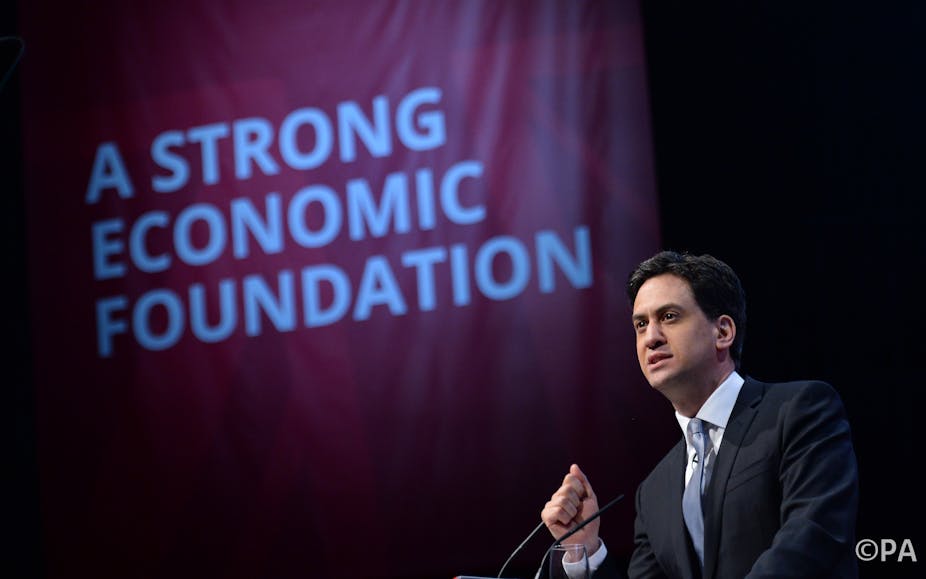Labour has become the first of the three bigger parties to publish an election manifesto.
And while the document reiterates familiar themes, it also presents something of a departure. The emphasis is very much on demonstrating that the party would be fiscally responsible in government.
As Miliband unveiled his plans, I was in the highly marginal North Warwickshire constituency – his party’s number one target seat. I was surprised by the level of support for UKIP, with voters mentioning immigration as a key issue. Labour’s pledges in this area are highly unlikely to reassure voters like these. Recruiting an additional 1,000 border control staff and bringing in tighter controls on short-term student visas is just not enough.
The goal of this manifesto is to overcome the economic credibility gap between Labour and the Conservatives. Ed Miliband pledged to cut the deficit year after year, although it was not clear when a balanced budget would be achieved, or indeed if it would be by the end of the new parliament in 2020.
Every pledge in the manifesto is said to be fundable without additional borrowing. This means, for example, that Labour can only pledge an initial £2.5 billion for the NHS, even though the Conservatives are promising £8 billion (even though where that money would actually come from is unclear).
There were also more familiar themes in Miliband’s address and the manifesto, such as looking after working people and their families and challenging the interests of the powerful and the rich.
Under Labour, the minimum wage would be increased to at least £8 per hour by October 2019 and zero-hours contracts would be abolished. Gas and electricity prices would be frozen until 2017. Measures would also be taken to protect tax credits.
This all represents a continuation of the theme that there is a cost of living crisis, that any recovery in the economy has not percolated through to those on average or below average wages. For many, any prosperity they enjoy is brittle.
However, it is also very much a core vote strategy – these are all policies that would appeal to traditional Labour voters. There was some attempt to appeal to voters in the south east – where voters are more traditionally Conservative. For them, Miliband offered a one-year freeze on rail fares, funded by delays in road schemes.
The risk with this strategy is that voters may think that all they are being offered by the two main parties are two different versions of austerity, albeit with a different sharing of the burden.
Scotland decides
Labour has, for some time, been struggling with the threat of the SNP in Scotland, and its manifesto may not help matters. Shadow chancellor Ed Balls has said that Scotland cannot be exempted from cuts, something that Nicola Sturgeon has been quick to pick up on.
It is doubtful whether the manifesto will change the balance of support between the two parties in a major way. And without a Labour recovery in Scotland, Ed Miliband may have to govern on the basis of some kind of agreement with the SNP.
It might be possible to get over the issue of Trident, but Labour’s determination to make cuts rests uneasily with the SNP’s commitment to increasing spending by 0.5% a year in real terms.
The publicity surrounding the manifesto launch may well give Labour a short-term boost in the polls (following a recent poll from before the launch that put them six points behind) but whether it will give them the kind of breakthrough that would deliver something close to an overall majority is much less certain. Both main parties are appealing to their core voters and there is relatively little movement of voters between them. It is the insurgent parties that threaten them both and are likely to shape the election result, even if Labour successfully re-brands itself as the party of fiscal responsibility.
Presenting the manifesto in Manchester, Ed Miliband sought to emphasise his ability to lead the country, stating “I’m ready”. The initial reaction from commentators was that his performance had been a powerful one, but he may also need to be ready to govern alongside a collection of other party leaders who also think they’re ready.

